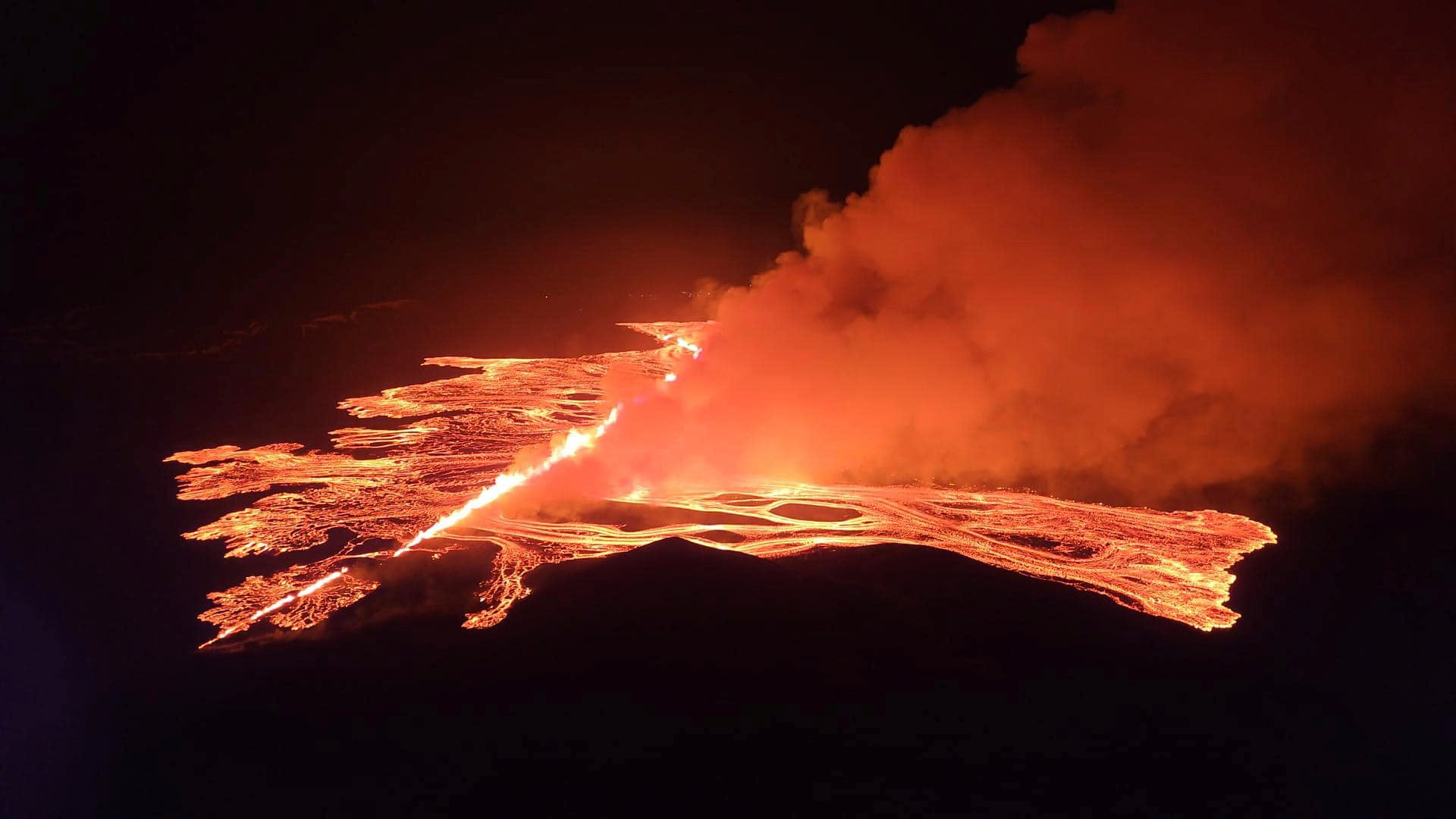A volcano in Iceland is erupting for the fourth time in 3 months, sending plumes of lava skywards
A volcano in Iceland has erupted for the fourth time in three months, sending orange jets of lava into the night sky

A volcano in Iceland erupted Saturday evening for the fourth time in three months, sending orange jets of lava into the night sky.
Iceland’s Meteorological Office said the eruption opened a fissure in the earth about 3 kilometers (2 miles) long between Stóra-Skógfell and Hagafell mountains on the Reykjanes Peninsula.
The Met Office had warned for weeks that magma — semi-molten rock — was accumulating under the ground, making an eruption likely.
Hundreds of people were evacuated from the Blue Lagoon thermal spa, one of Iceland’s top tourist attractions, when the eruption began, national broadcaster RUV said.
No flight disruptions were reported at nearby Keflavik, Iceland’s main airport.
The eruption site is a few kilometers (miles) northeast of Grindavik, a coastal town of 3,800 people about 50 kilometers (30 miles) southwest of Iceland’s capital, Reykjavik.
Grindavik was evacuated in November when the Svartsengi volcanic system awakened after almost 800 years with a series of earthquakes that opened large cracks in the ground north of the town.
The volcano eventually erupted on Dec. 18, sending lava flowing away from Grindavik. A second eruption that began on Jan. 14 sent lava toward the town. Defensive walls that had been bolstered after the first eruption stopped some of the flow, but several buildings were consumed by the lava.
Both eruptions lasted only a matter of days. A third eruption began Feb. 8 and petered out within hours.
RUV quoted geophysicist Magnús Tumi Guðmundsson as saying that the latest eruption is the most powerful so far.
Iceland, which sits above a volcanic hot spot in the North Atlantic, sees regular eruptions and is highly experienced at dealing with them. The most disruptive in recent times was the 2010 eruption of the Eyjafjallajokull volcano, which spewed huge clouds of ash into the atmosphere and led to widespread airspace closures over Europe.
No confirmed deaths have been reported from any of the recent eruptions, but a workman was declared missing after falling into a fissure opened by the volcano.
Subscribe to Independent Premium to bookmark this article
Want to bookmark your favourite articles and stories to read or reference later? Start your Independent Premium subscription today.
